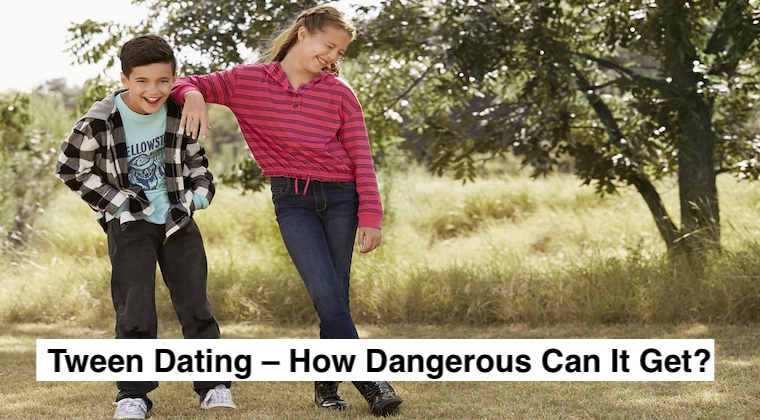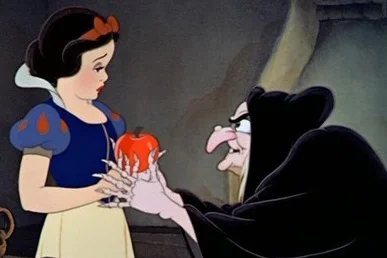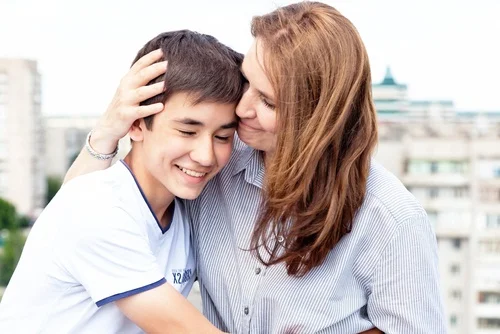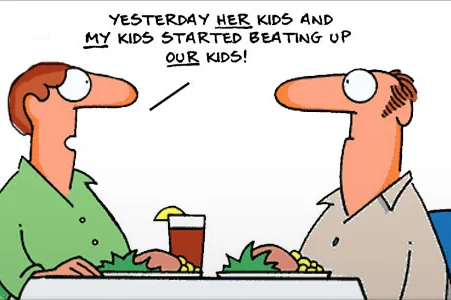+1 845 259 2974 (11 a.m to 7 p.m CST)
Tween Dating – How Dangerous Can It Get?

Dating is becoming common, even for young kids. While teenagers dating is widely discussed, tween dating is rising. Tweens, usually between the ages of 10 and 12, are curious about relationships. But this early experience can come with risks. Let’s get in to the details of what tween dating is and how can it affect your kid. Also, there are several things that parents can do to protect their kids from the terrible consequences of tween dating.
What is Tween Dating?
Tween dating can mean different things for different kids. It often starts with texting, chatting on social media, or having a “boyfriend” or “girlfriend” at school. At this age, tweens are exploring their feelings and trying to understand what it means to like someone. They might talk to their friends about their crushes or feel excited when someone they like talks to them.
However, at this young age, tweens may not fully understand the meaning of dating. They may see it as fun or something to do because their friends are doing it. Most tweens are not emotionally ready for the responsibilities and challenges that come with romantic relationships.
Difference Between Tween Relationships and Adult Relationships
Tween relationships are different from adult relationships in many ways. First, tweens are still growing emotionally. They may not know how to handle strong emotions like love, jealousy, or rejection. Their brains are not fully developed, so they might act impulsively without thinking about the consequences.
On the other hand, adult relationships are more mature. Adults have more experience with managing emotions and understanding boundaries. Adults usually know how to communicate and work through conflicts. Tweens, however, are just starting to learn these skills. They may not know how to deal with problems that come up in their relationships, leading to stress or confusion.
Adult relationships are often based on shared values, trust, and long-term commitment. Tween relationships are usually about having fun, fitting in with friends, or exploring new feelings. This makes tween dating very different from the relationships adults experience.
Terrible Consequences of Tween Dating
Though it might seem harmless, tween dating can have negative effects. Tweens are still figuring out who they are, and dating at this age can add pressure. Here are some of the terrible consequences:
1. Emotional Impact
Tween dating can cause a lot of emotional stress. If a relationship ends, a tween might feel heartbroken, rejected, or confused. These emotions can be overwhelming for them because they don't have the emotional tools to handle them yet. It can also make them feel anxious or insecure if things aren’t going well in the relationship.
2. Bullying and Cyberbullying
Tween relationships can sometimes lead to bullying. Other kids might tease or make fun of a tween who is in a relationship. Worse, they could be the target of cyberbullying if their personal details or messages are shared online. Tweens are particularly vulnerable because they might not know how to protect their privacy online.
3. Exposure to Inappropriate Content
With the rise of social media and smartphones, tweens might be exposed to inappropriate content. They could see or share things that are not suitable for their age. Sometimes, older kids or strangers might target tweens, leading to dangerous situations. Tweens may not understand the risks of sharing personal information or photos.
4. Distraction from School and Personal Growth
Dating at a young age can be distracting. Tweens might spend more time thinking about their relationships instead of focusing on school or hobbies. They might start to care more about their relationships than their studies or personal development, which can affect their growth.
How Can Parents Protect Their Kids?
Parents play a key role in guiding tweens through these early years. Here are some ways parents can help protect their kids:
1. Encourage Open Communication
It’s important for parents to talk openly with their kids about dating. Create a safe space where tweens can share their feelings without fear of judgment. Encourage them to ask questions about relationships and emotions. By listening to them, parents can help tweens understand the challenges of dating.
2. Set Clear Boundaries
Setting clear rules about dating is essential. Parents should explain what is appropriate for their child’s age. This can include rules about who they can date, what kind of dates are allowed, and limits on screen time. Setting boundaries helps tweens understand what is acceptable and keeps them safe.
3. Teach Them About Healthy Relationships
Parents should teach tweens about healthy relationships. This includes respect, honesty, and communication. Tweens need to know that it’s okay to say no if they are uncomfortable and that they deserve to be treated with kindness. Teaching these values early on can help tweens navigate future relationships.
4. Monitor Online Activity
Tweens spend a lot of time online, and it’s easy to lose track of what they are doing. Parents should monitor their child’s online activity to ensure they are safe. This includes checking social media accounts, messages, and the apps they are using. Explain to your tween why it’s important to stay safe online.
How Monitoring Can Help in Such Scenarios
Monitoring your tween’s online activities can help keep them safe. Here’s how it works:
1. Tracking Online Behavior
There are many monitoring apps that allow parents to track their child’s online activities. These apps can show parents who their child is talking to, what apps they are using, and how much time they are spending online. By keeping an eye on these activities, parents can spot any red flags or dangerous situations early.
2. Watching for Signs of Trouble
Monitoring apps also help parents watch for signs of trouble. If a child is talking to someone they don’t know, parents can step in and have a conversation with their child. Monitoring can also reveal if a child is being bullied or pressured into doing things they don’t want to do. This early intervention can protect kids from harm.
3. Ensuring Online Safety
Monitoring allows parents to guide their child’s online behavior. Parents can help tweens understand the importance of privacy and teach them how to avoid sharing personal information. Monitoring also makes it easier to keep tweens away from inappropriate content or harmful websites.
Tween dating might seem harmless, but it can have serious consequences. Tweens are not emotionally ready for the challenges that come with dating, and it can lead to stress, bullying, or distractions from their growth. Parents play a crucial role in guiding their tweens through this stage. By setting boundaries, teaching healthy relationships, and monitoring their online activities, parents can protect their kids from potential dangers. Monitoring apps can help parents keep an eye on their tweens, ensuring they stay safe while navigating the confusing world of early relationships.























